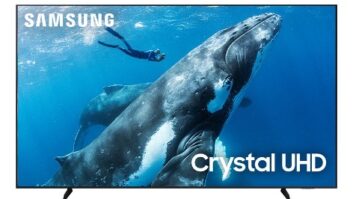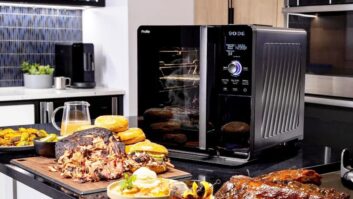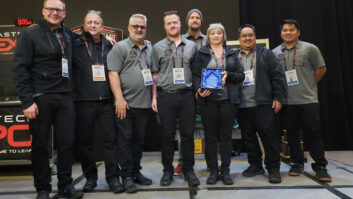If you ever heard some of the ways columnists get their ideas for their work, the answers they are usually as varied as the columnists. Sometimes an idea presents itself on a silver platter, such as a major story that breaks on deadline and you have a lot to sink your teeth into. But that’s rare. Usually ideas for columns come from hard work, dumb luck, by design, or serendipity … and not necessarily in that order.
This one has to do with a little luck and a little serendipity. During this past November my wife and I attended the industry’s annual ADL dinner at the Plaza Hotel. Who did I see from across the room but the founder and chairman of Best Buy, Dick Schulze. We waded through the crowd at the dinner and briefly shook hands and said hello. I hadn’t seen him in at least two years if not more.
Of course since June 2002 Schulze has taken a step back at Best Buy. While he is still chairman, Schulze is no longer involved in the day-to-day workings of the company, leaving that in the capable hands of vice-chairman/CEO Brad Anderson and Allen Lenzmeier, president/chief operating officer.
After meeting Schulze at the dinner I recalled a major interview I had with him during September 1994, when TWICE visited Best Buy headquarters to discuss the rollout of the chain’s Concept III stores. I was curious and found my old notes from the 1994 interview. What I discovered was some of his goals for Best Buy and his views on future industry trends. They are fascinating when you read them with a decade’s perspective.
Best Buy was just getting into the PC market in 1994. He said that computers “are a bridge to the information highway … where the consumer can use [PCs] to [optimize] audio/video equipment, tap into information and entertainment to use [CE] products more efficiently.” The only phrase that’s missing is “home networking.”
When Schulze discussed the near future of Best Buy’s business, upon reflection, his observations were right on the money. According to Best Buy’s numbers during 1994 the chain had 151 stores which generated $19.9 million per store. He said that by 1998 “we would hope to be in position to generate, on average, better than $30 million [in sales] per store.” Well while Schulze’s goal of 400 stores nationwide by 1998 was off (284 was the real number), but sales per store were $29.2 million.
Schulze also volunteered in 1994 where he thought Best Buy’s product might be by 1998. “I see it changing in four years, but not dramatically. We see growth in the computer business to about 40 percent; consumer electronics about one-third; appliances growing to the mid-teens; and software [music, video, computer, game] to about 15 percent.”
Well I don’t have the 1998 mix numbers, but I do have the mix as of fall of 2003. Best Buy listed its product selection [without Musicland] as the following: consumer electronics, 34 percent; home office, 31 percent; entertainment software, 22 percent; other [accessories, furniture, etc.]; and major appliances, 6 percent.
These numbers are close to what Schulze said 1998’s performance might look like. “Home office” is computers under another name. Some of the chain’s entertainment software mix has to be computer software, so you can make an argument that Schulze’s 40 percent prediction is pretty good. As for the relatively low major appliance performance of 6 percent, who knew in 1994 that Home Depot and Lowe’s would become such a factor?
Concerning major appliances, it hasn’t been an accident that it continues as part of the Best Buy product mix. Neither is the addition of entertainment software of all types. Those additions over the years have not just been about sales, but about a well-thought out strategy.
As Schulze put it, again back in 1994, “We appeal to a younger consumer demographic … and it is important that we retain customers at a young age. We admire Sears’ ability to have maintained an ongoing relationship with consumers over the years. We are trying to become their store of choice, over time, and the appliance business plays into that. We hope that as our younger customers get married and buy a home that we become the store of choice. The same customer that buys a PC, microwave, CD is just as likely to say he wants to replace his washing machine or dishwasher, and they can do it at our stores.”
Today you can still buy appliances, and all of the newest consumer technology products at Best Buy. It has been Schulze’s vision, and the talent of the Best Buy management team, to accurately see and act on current and future trends. Those traits continue to make Best Buy one of the most dominant operations in retailing, both nationally and worldwide.












